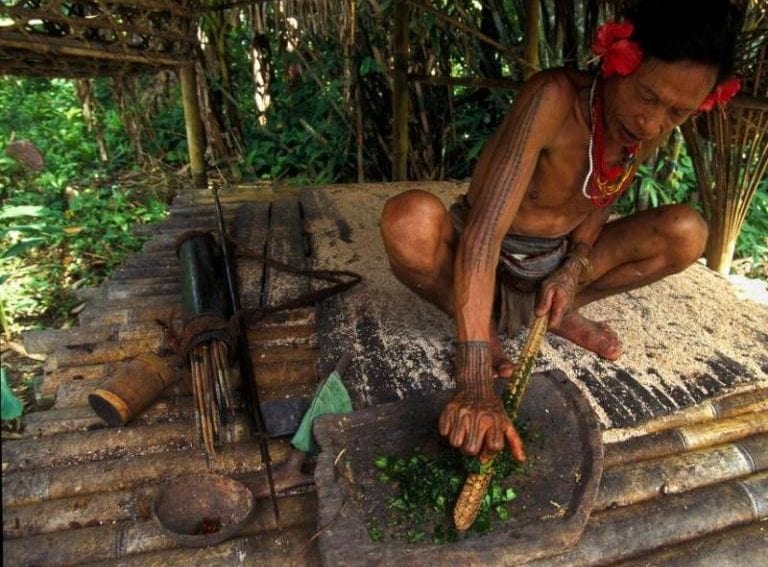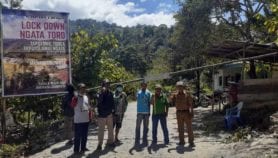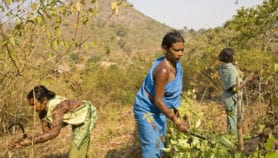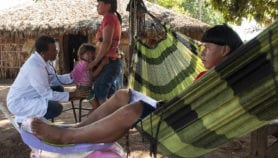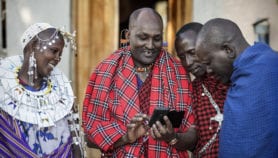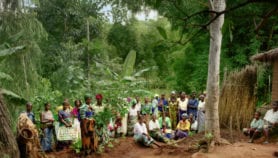By: Anita Makri
Send to a friend
The details you provide on this page will not be used to send unsolicited email, and will not be sold to a 3rd party. See privacy policy.
A case of commercialising a South African plant shows one way to work together and add value to natural resources.
A few weeks ago I visited South Africa to document the story of a company making modern health products from a medicinal plant used for thousands of years by the indigenous San and Khoi people. I was searching for an example of traditional medicine brought into the twenty-first century — the topic of one of SciDev.Net’s consistently popular features, an updated version of which we published last week.
I found what I was looking for, but the story was much richer than a case of harnessing ancient knowledge of medicinal plants. It was a window into what it takes to collaborate successfully and to use indigenous knowledge responsibly, in a way that helps redress historical injustices.
A holy plant
The plant at the centre of this story is known as buchu in South Africa. The San people consider it a holy plant with spiritual and healing qualities — it was used to bring men out of the trance they fell into during healing dances, and to treat ailments such as fever and stomach or back aches. The San and Khoi still use it as medicine today.
Several companies have been marketing the buchu for years for its antibacterial and antifungal properties, or as a food additive. But a South African law enacted in 2004, to bring the Convention on Biological Diversity into force, requires any company trading in buchu to share the benefits with the San. [1] The convention is a step towards justice for disadvantaged people whose resources and knowledge have been used for profit without any recognition or reward.
“It’s not a fight between firms and traditional people; it’s a seeking of a fair balance.”
Roger Chennells, South Africa
Human rights lawyer Roger Chennells, who represents the San and Khoi in South Africa, told me that nutraceutical firm Cape Kingdom is one of the first companies to “do the right thing” by negotiating such a benefit sharing agreement without any legal threat. Another motivation, the firm admits, was the marketing benefit of this socially responsible step.
But a willingness to partner is no guarantee of success. Indeed, the first benefit sharing agreement Chennells negotiated for the San involved the Hoodia gordonii plant they have used to stave off hunger and thirst. After years of legal wrangling involving three large corporations, research and development plans were abandoned.
There are other cases where implementing the Convention on Biological Diversity has proved tricky. A book that delves into the many facets of benefit sharing for indigenous peoples identifies some reasons for this. [2] For example, it’s often difficult to trace traditional knowledge to one group; communities may be divided about agreeing to schemes to commercialise their knowledge; and indigenous groups often lack the capacity to negotiate with potential partners.
The uncertain value of resources
While in South Africa I also spoke to Kelly Chibale, director of the drug discovery and development centre at the University of Cape Town, who agrees that capacity is a huge problem. A lack of education about fostering partnerships is pervasive in Africa, he told me, hindering collaboration and innovation. People tend to overvalue their ideas or resources, and fear that others will exploit them, so it is hard to get them to work together.
Chibale says Africa pays a high price for this: despite claims of rich resources, their value remains unknown until they are tested through science and technology. “It’s really in giving that you receive,” he says. Unless there’s value added to something, it only has potential — it won’t attract partners or recognition, and benefits won’t accrue.
For the San, the Khoi and Cape Kingdom, that share is three per cent of sales revenue. This seemed low, but everyone I spoke to stressed the money, skills and effort it takes for a company to innovate and take a product through the R&D pipeline — to test for safety and efficacy, manufacture, take risks in the market and secure permits for bioprospecting.
Chennell’s advice for others pursuing similar agreements is to be realistic and appreciate that any benefits for a community will depend on the company’s success.
Unearthing lost knowledge
Of course, the benefits go beyond money. Such an agreement also means the communities are belatedly being acknowledged for the value of their knowledge about the buchu plant.
According to San leader Petrus Vaalbooi, the buchu touches a wider issue: the lost knowledge of the value and healing properties of plants in some San communities in Southern Africa. [3] Where this is the case, benefit sharing agreements may motivate indigenous people and scientists to preserve that knowledge by showing its value.
Film by Amy Azra Dean
But they must be conducted responsibly: by securing informed consent, managing expectations about benefits and ensuring that the process allows enough time and discussion, involves mutual understanding and a fair representation of indigenous groups.
The role of scientists, governments and companies is crucial. Scientists can update old knowledge; governments need to cut red tape to make it easier for people to access resources, and then ensure agreements are straightforward; and successful businesses are simply essential. We shouldn’t frighten them off, says Chennells. “It’s not a fight between firms and traditional people; it’s a seeking of a fair balance.”
Indigenous groups around the world are involved in lengthy and, at times, brutal fights with firms or governments for their right to land and resources. My hope is that the principles of successful collaboration that emerge from this modest case of commercialising an indigenous medicinal plant in South Africa might inspire others to work together for mutual benefit under appropriate legal and ethical frameworks. It may not be an easy road, but with tangible rewards and safeguards on both sides, perhaps a road worth taking.
Anita Makri is opinion and special features editor at SciDev.Net.
References
[1] Convention on Biological Diversity (UN, 1992)
[2] Rachel Wynberg and others (eds) Indigenous peoples, consent and benefit sharing: lessons from the San-Hoodia case (Springer, 2009)
[3] Responsible, inclusive innovation — The buchu plant (YouTube, video published on 26 June 2015)


